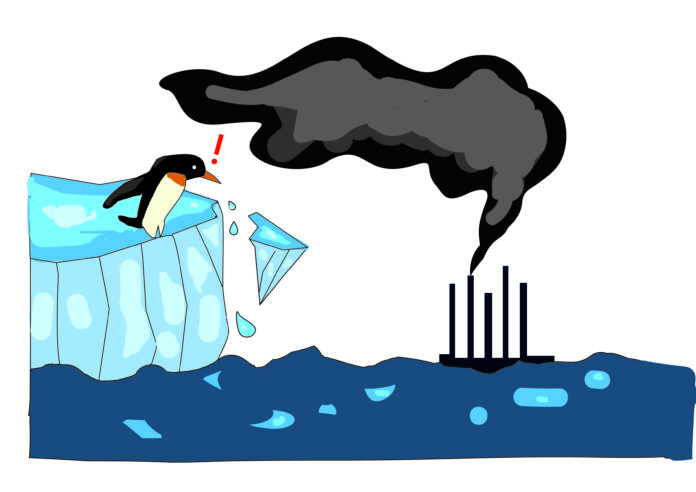The growing human presence in Antarctica, mainly for tourism and research, is accelerating snowmelt according to a study published in the peer-reviewed journal Nature Communications. This amounts to bad news for a planet already dealing with the repercussions of global warming. The study calculated how black carbon pollution reduced the albedo of the snow, which is the measure of how efficiently a surface reflects solar light.
Black carbon is a particulate matter component and short-lived airborne particle that has been associated with global warming and harmful health impacts. Due to its dangerous effects, black carbon emissions have received some attention from the Government of Canada, which produces a yearly report on the country’s emissions.
According to the 2021 Black Carbon Inventory Report, the main source of black carbon pollution originates from the burning of fossil fuels, which can come from the Ore and Mineral Industries, Oil and Gas Industry, and fuel use both within what they call “Transportation and Mobile Equipment” and “Commercial/Residential/Institutional.” Reducing black carbon emissions is especially important in polar regions like the Arctic and Antarctica, which are particularly vulnerable to its effects.
Black carbon has accumulated in areas frequented by visitors and researchers in Antarctica. Because of its low albedo, even small concentrations of the pollutant can have a large impact on melting. Every summer, an additional 23 mm of water equivalent snow melts on the Antarctic Peninsula in black carbon-affected areas.
What is unfolding in Antarctica has far-reaching consequences. Antarctica is a vast, white continent that reflects a large portion of the sun’s energy back up into space. The loss of ice and snow cover increases the rise of ocean and land temperatures, which leads to additional melting, creating a vicious cycle.
According to Marilyn Raphael, a geography professor and director at UCLA’s Institute of the Environment and Sustainability, Antarctica’s sea ice is critical for maintaining atmospheric circulation. These changes in atmospheric circulation affect the global climate.
Additionally, Antarctic species are struggling with habitat loss as the climate warms and sea ice melts. For example, researchers have recently noticed a startling drop in penguin colonies as their main source of food (krill) grows harder to come by. The Nature Communications study predicts that this is only going to worsen if black carbon emissions do not decrease.
As Antarctica remains one of the last “unpolluted” continents, it is important for us to strive for it to remain that way. Mitigating black carbon pollution and its impacts is a necessary and arduous process. Some researchers have suggested setting a limit to tourism allowed in the region and to push for renewable energy sourced over diesel. Transitioning Antarctica’s modes of transportation to hybrid or fully electric models is also heavily encouraged by scientists.






























